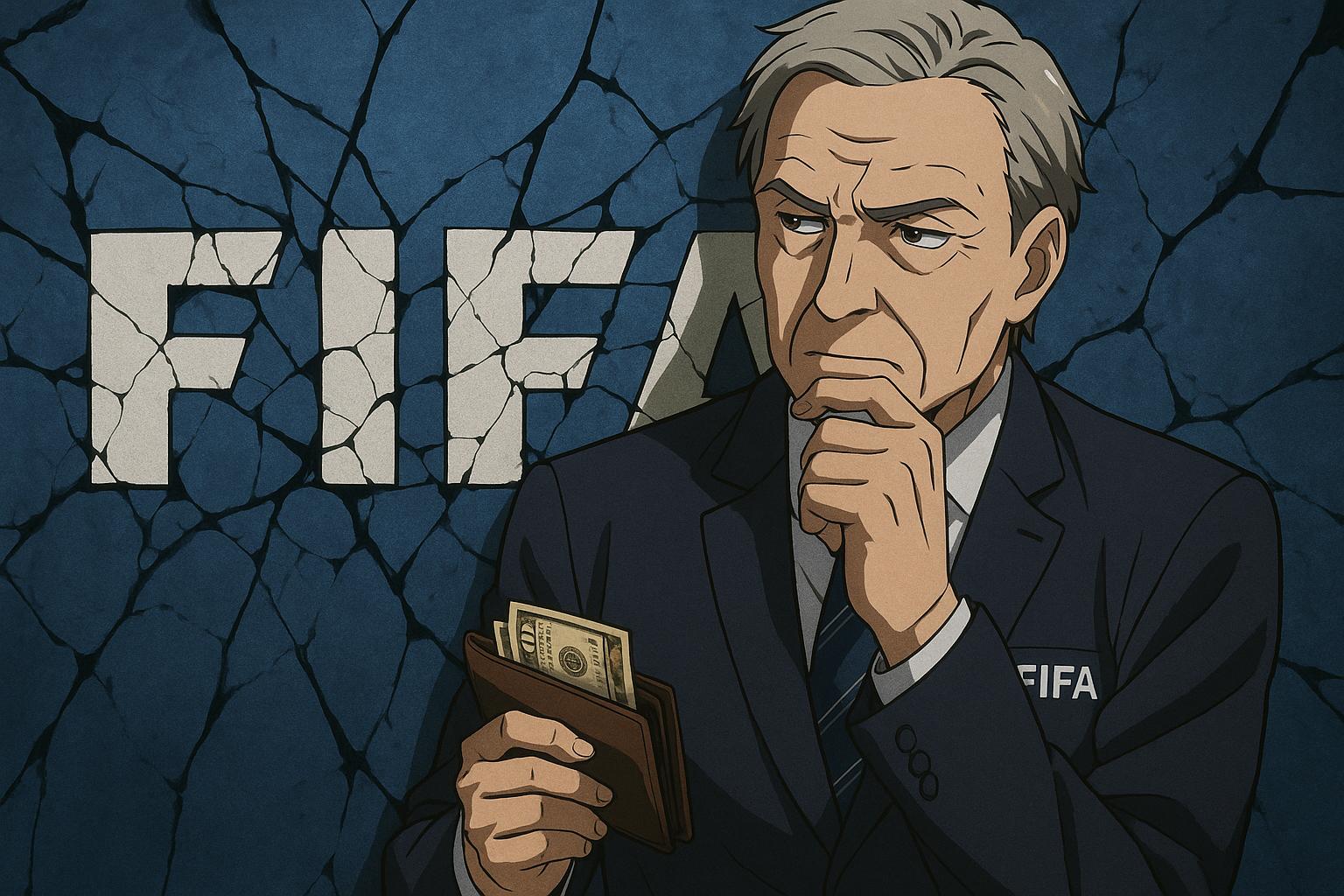A decade has passed since the infamous arrests of seven senior officials at FIFA on corruption charges, yet the organisation is reportedly in a parlous state of governance. In an open letter addressing FIFA, a coalition comprised of non-governmental organisations, legal experts, academics, and supporter groups has stated that the body is “arguably more poorly governed today than it was 10 years ago.” This stark assessment comes at a critical time as the global football community reflects on the regulatory changes that have unfolded since the scandal.
The letter urges FIFA to confront its “key structural flaws,” particularly highlighting the troubling power dynamic between FIFA's executive branch and its member associations. While FIFA has maintained that a significant portion of its generated revenue is redistributed to these associations and confederations, critics argue there is scant evidence to suggest that this practice has substantially benefitted the sport's growth. Instead, they claim it serves primarily to secure loyalty from member bodies, thus fostering an environment that disincentivises ethical conduct and stymies meaningful reform.
Upon his election in 2016 following the scandals, Gianni Infantino vowed to usher in a new era of transparency and accountability within FIFA, claiming a commitment to restore the body's reputation. However, as the landscape of global football evolves, expert opinion increasingly reflects dissatisfaction with the reforms purportedly instituted under his leadership. Notably, the criticism underscores ongoing governance failures, such as the decision to award the 2034 World Cup to Saudi Arabia amidst concerns about the nation's human rights record. This decision has amplified debates around FIFA's decision-making opacity and the broader implications for the sport.
Nick McGeehan, co-director of FairSquare, a human rights advocacy group that helped coordinate the open letter, articulated the discontent with the ongoing situation at FIFA: "This statement demonstrates not only the rank failure of the reforms enacted under the presidency of Gianni Infantino, but also the breadth of expert opposition to and frustration with FIFA’s dysfunctional governance model." Furthermore, Bonita Mersiades, a prominent whistleblower from the previous decade, voiced similar sentiments, underscoring that while procedural changes have occurred, the underlying culture within FIFA has failed to evolve. "True reform demands more than new systems—it requires new values," she remarked, emphasising the need for a fundamental cultural shift.
In the backdrop of these governance challenges, FIFA has faced legal challenges from various quarters. Notably, in June 2024, FIFPRO, the global players' union, lodged a legal claim against FIFA, asserting that the expanded 32-team format for the Club World Cup infringes upon players' rights by monopolising their time and disregarding established laws. They argue that this unilateral approach exemplifies a troubling disregard for stakeholder interests, a sentiment echoed by critics of FIFA's governance practices.
Moreover, external pressure is mounting. The Norwegian Football Federation has publicly condemned FIFA's bidding processes for upcoming World Cups as "flawed and inconsistent," while U.S. Senators have urged against granting hosting rights to Saudi Arabia due to its dubious human rights record. The situation is further complicated by a collective of over 100 professional women footballers urging FIFA to end its partnerships with entities like Saudi Aramco, arguing that such collaborations tarnish the sport’s values.
In response to these critiques, a FIFA spokesperson has suggested that recent interactions with U.S. authorities, who had previously intervened in the 2015 scandal, represent a partnership pivot towards responsible governance. They highlighted internal reforms that have reportedly enhanced financial governance and transparency, as well as a sevenfold increase in investment in football development across the globe. Nonetheless, whether these efforts will suffice to quiet the discontent among stakeholders remains an open question.
As the global football community braces for the forthcoming Club World Cup and the implications of the 2034 World Cup award, the pressure is mounting on FIFA to deliver a governance structure that not only promotes the sport but fundamentally upholds its ideals of integrity and fairness.
Reference Map:
- Paragraph 1 – [1], [2]
- Paragraph 2 – [1], [5]
- Paragraph 3 – [2], [3], [4]
- Paragraph 4 – [1], [3], [6]
- Paragraph 5 – [7], [1]
- Paragraph 6 – [1], [4]
- Paragraph 7 – [4], [5]
Source: Noah Wire Services
